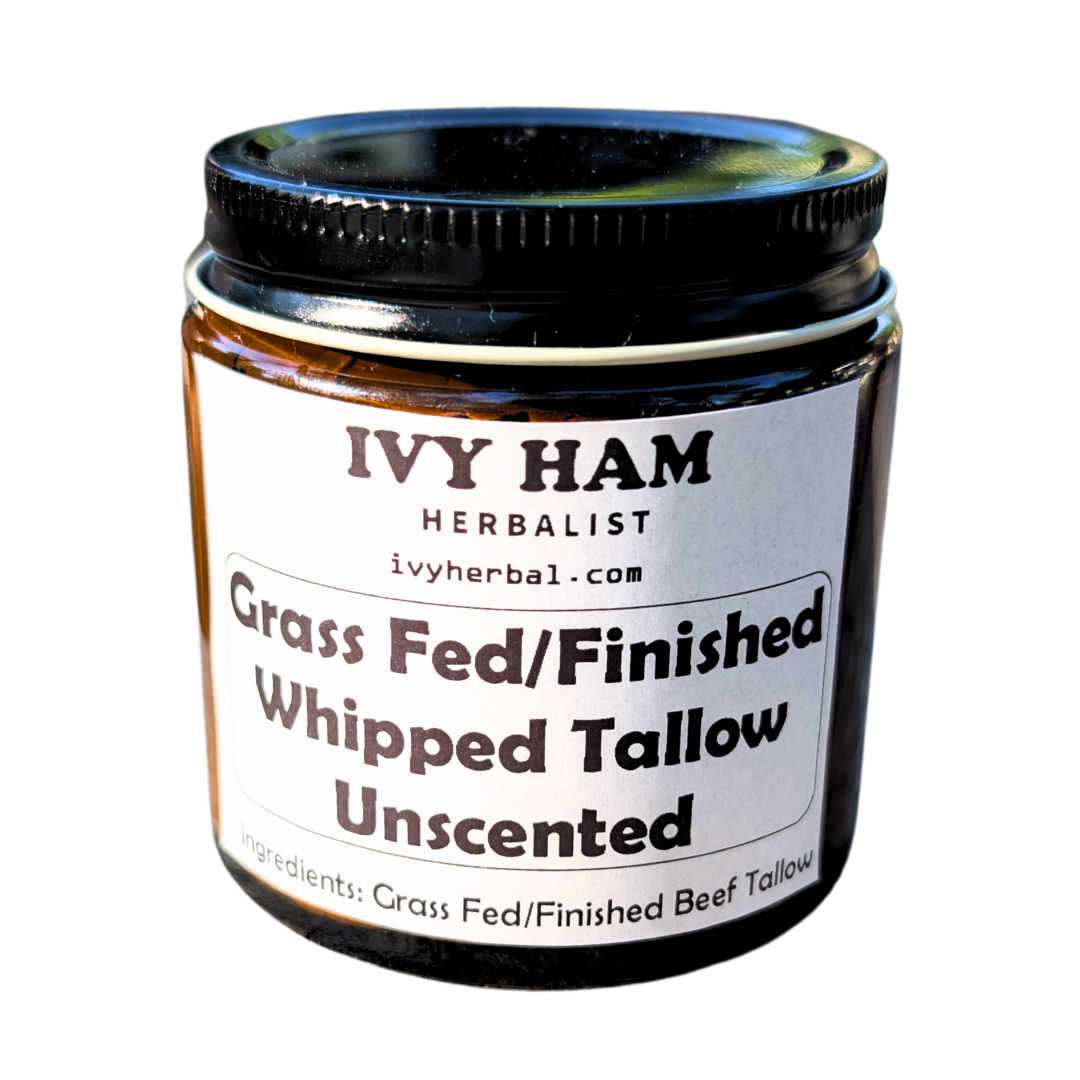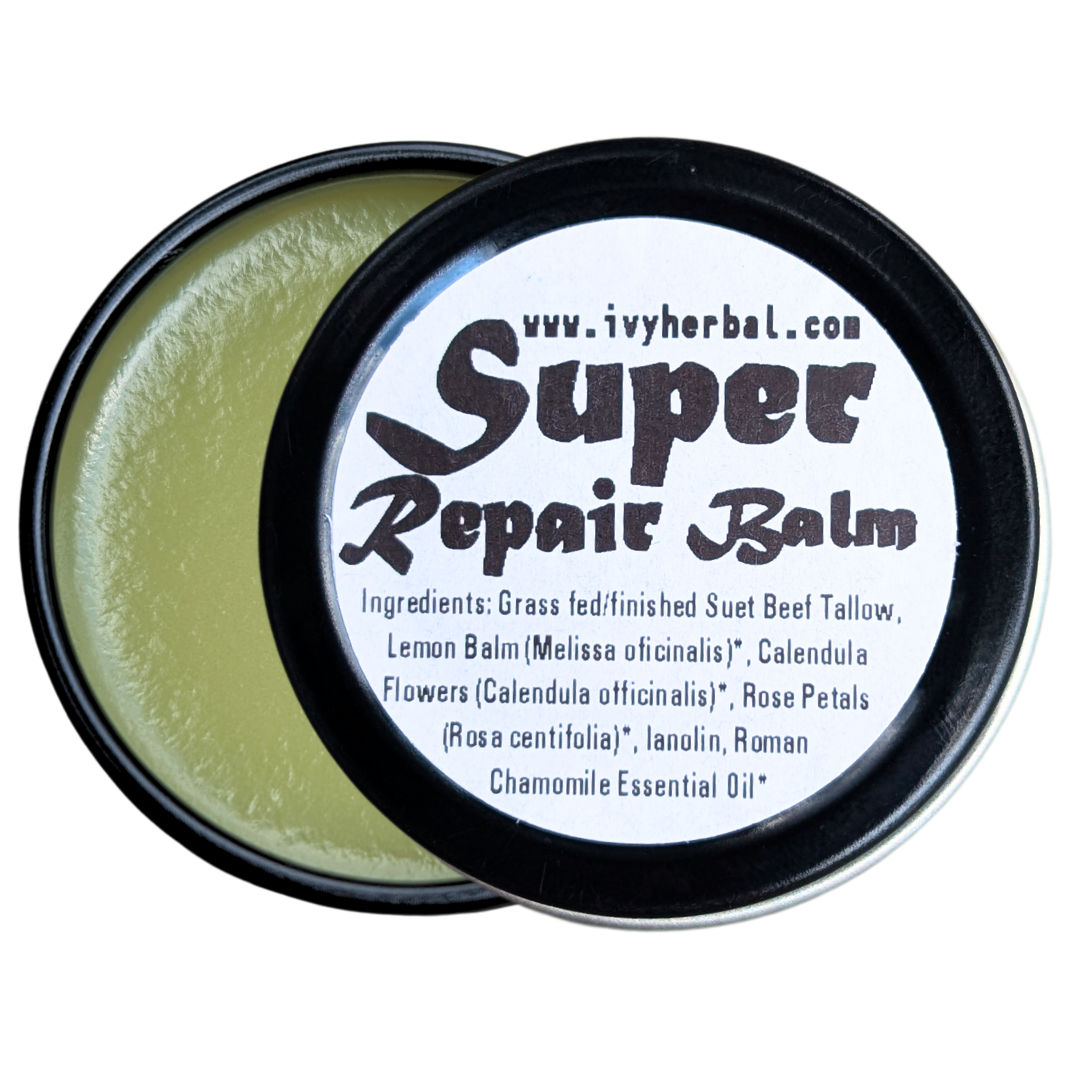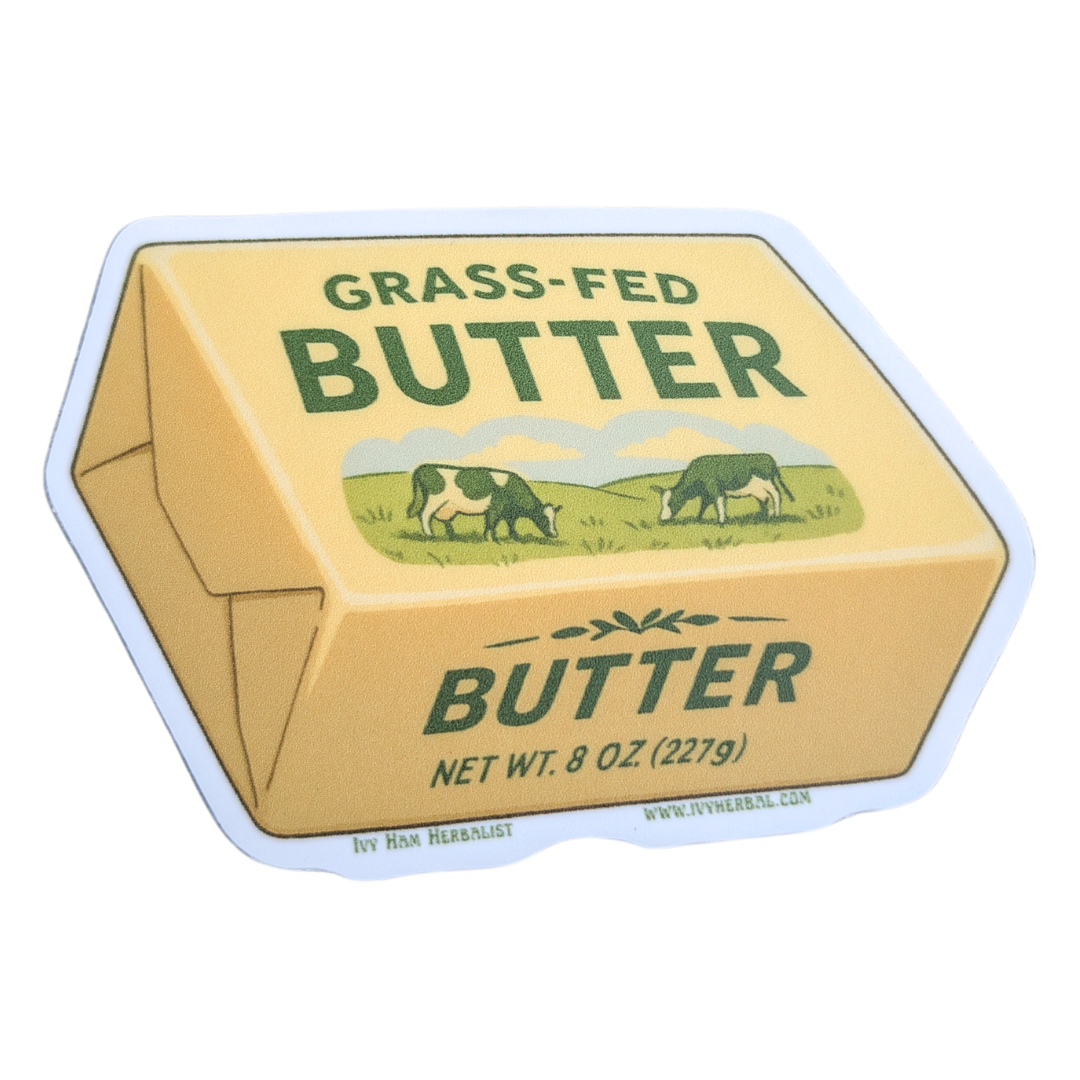A Complete 7-Day Ray Peat–Inspired Bioenergetic Meal Plan
As a clinical herbalist and holistic health practitioner, I often experiment with my diet, and I’m really loving how I have been feeling after learning about Dr. Ray Peat’s research and incorporating his ideas into my diet. I’ve been feeling better energy, better hormone health, and I wanted to share with you all what I’ve been doing!
Some Background Info
Our modern diets, even the healthier ones still are lacking in nutrient density and often contain a lot of anti-nutrients. I’ve even traveled a bit over the course of the last few months while following a meal plan similar to the one below, and have still felt pretty great, despite eating less optimally while away from home. Previously, eating out, or deviating from my normal diet on a trip would have caused a mild acne breakout or minor digestive issue for at least a day. I’m now more resilient, I have better energy (enough to actually get back in the gym consistently for the first time since 2019), and I have a more positive outlook on life. It is so clear that your mood and outlook on life are related to the foods we consume and overall feelings of wellness.
The Meal-Plan
This 7-day meal plan is based on the bioenergetic principles of Dr. Ray Peat, which include supporting mitochondrial function, lowering inflammation, and emphasizing foods that promote hormonal balance and energy production.
This whole-food-based plan focuses on:
Saturated fats (grass-fed butter, coconut oil, dairy)
Easy-to-digest proteins (eggs, dairy, gelatin, shellfish, liver)
Low-PUFA fruits and roots
High-calcium and magnesium intake
Avoiding estrogenic foods and additives
Let’s get into it.
Why Follow a Ray Peat–Inspired Diet?
Ray Peat emphasized metabolism as the cornerstone of health, which makes so much sense if you think about it. Metabolism is like the root of so many health issues that plague our modern society. This diet also prioritizes protecting the thyroid and liver, which are both organs that are integral to hormone balance. Hormones are messengers that keep everything running in timely patterns throughout your whole body. His approach prioritizes:
Thyroid support through sugar and saturated fat
Liver health with nutrient-dense animal foods
Hormonal balance by avoiding polyunsaturated fats (PUFAs) and excess serotonin
Energy production at the cellular level (mitochondria)
This meal plan reflects those principles, balancing protein, carbs, and healthy fats while optimizing micronutrient intake from real food.
The 7-Day Bioenergetic Meal Plan
Below is a high-level meal plan designed for an adult aiming for optimal metabolic health. Each day includes roughly 90–150g of protein, 150–250g of carbs (mostly from fruit, root veggies, and dairy), and about 60–90g of fat (primarily saturated and monounsaturated).
| Day | Breakfast | Lunch | Dinner | Snacks |
|---|---|---|---|---|
| Monday | Soft-cooked eggs in butter (runny yolks), orange juice with salt, coffee with milk and honey | Shrimp salad with hard-boiled egg, raw carrots, raw cheese, coconut water | Slow-cooked beef shank with mashed squash in butter, gelatin fruit gummies | Greek yogurt with honey, papaya, or raw milk ice cream |
| Tuesday | Greek yogurt with collagen powder, orange juice with salt, espresso with milk and honey | Beef liver pate on sourdough, carrot salad, bone broth | Pan-fried white fish, white rice cooked in bone broth, sautéed zucchini | Homemade flan, orange slices, cheese cubes |
| Wednesday | Cottage cheese with collagen stirred in, orange juice with salt, coffee with milk and honey | Beef shank stew with squash and carrots, raw cheese, gelatin-rich broth | Burger with liver mixed in, mashed potatoes in butter, well-cooked mushrooms | Fruit juice, boiled egg |
| Thursday | 3 egg yolks raw + milk shake, sourdough toast with butter, coffee with raw cane sugar | Shrimp soup with carrots and squash, coconut water, raw cheese | Braised oxtail, mashed roots, sautéed summer squash with garlic in tallow | Homemade marshmallows, milk, pineapple chunks |
| Friday | Milk custard with added gelatin, orange juice with salt and collagen peptides, coffee with milk and honey | Salmon salad, cucumber, sourdough, carrot slaw | Stuffed peppers with beef and rice, cheese, bone broth | Gelatin drink with fruit juice, Greek yogurt with vanilla |
| Saturday | Soft-cooked eggs in butter (runny yolks), goat cheese, OJ with salt and collagen peptides, espresso with milk and sugar | Beef liver fried rice with onions and squash, steamed carrots, milk | White fish ceviche, baked sweet potato with butter | Tapioca pudding, bone broth, raw fruit |
| Sunday | Raw egg yolks blended into warm milk with raw honey and salt, sourdough toast with grass-fed butter, soft-cooked fried eggs, coffee with milk and honey | Oxtail soup with squash, side of sourdough toast with butter | Roast beef with mashed squash and carrots in butter | Flan, gelatin gummies, coconut cream yogurt |
Core Nutrients Covered
This plan includes:
Protein: Beef, liver, fish, eggs, dairy, gelatin, shellfish
Fat: Butter, coconut oil, dairy fat, beef tallow (all low PUFA)
Carbohydrates: Fruit, fruit juice, root vegetables, white rice, sourdough
Calcium: Dairy (milk, cheese, yogurt), bone broth
Magnesium: Squash, root veggies, shellfish
Vitamin A: Liver (1–2x/week), egg yolks
Vitamin E: Coconut oil, butter
B Vitamins: Liver, eggs, dairy, seafood, gelatin
Selenium & Zinc: Seafood, eggs, beef
Glycine: Bone broth, gelatin, skin-on meats
Tips for Customization
Just a reminder that these are not medical advice. If you are pregnant or nursing or have some other health condition, please consult with your medical provider prior to changing your diet. This information is provided for educational purposes only. Pregnant or nursing? You might consider increasing calcium, magnesium, and protein slightly. Cholesterol is super important during pregnancy as well, since it is the precursor to all steroid hormones and is an essential component of your baby’s nervous system.
Constipated? Add more raw carrot salad and magnesium-rich foods.
Stress? Add more fruit juice, bone broth, and easily digestible carbs.
Trying for weight loss? Focus on protein and gelatin-rich meals while reducing fat slightly.
Wait, I Thought Sugar Was Bad?
If you’ve spent any time in mainstream health spaces, you’ve probably been told that sugar is toxic, addictive, causes acidity in the body and the root of all modern disease. Obviously this leaves out any nuance between unprocessed sugars from natural sources vs things like high-fructose corn syrup. Dr. Ray Peat had a very different view on this point, one rooted in physiology and backed up by his decades of research. As someone who lived low-carb for several years, I was skeptical at first, but after trying out his philosophy for myself, I notice that I feel much better including natural, minimally-processed sugars in my diet compared to how I felt restricting them.
Peat emphasized that glucose is the brain’s preferred and primary fuel source, and that under stress, the body will break down muscle tissue to produce glucose if it’s not available through diet, a process also known as “muscle catabolism”. Rather than seeing sugar as something to avoid at all costs, Peat saw a lack of it (especially during times of stress) as a serious threat to the thyroid, metabolism, and hormonal balance.
Why Sugar (in the Right Context) can be Helpful
The brain and nervous system run almost exclusively on glucose. Denying them sugar forces the body into a catabolic (breakdown) state.
Fruits and fruit juices provide not just glucose and fructose, but potassium, magnesium, flavonoids, and digestive enzymes.
Sucrose (table sugar) is a 50/50 mix of glucose and fructose, and Peat argued this combination was less likely to spike insulin or provoke stress hormones than starches like grains.
Fructose in fruit helps the liver store glycogen more efficiently, which stabilizes blood sugar and supports thyroid function.
Your thyroid is the control center for your metabolism, so if it’s running sub-optimally, this can lead to weight gain/retention.
Peat especially warned against high-starch diets (like grains, legumes, and potatoes), which can:
Feed gut bacteria and promote endotoxin (Endotoxin is a toxic bacterial byproduct that can escape the gut and cause inflammation, slow metabolism, and suppress thyroid function.)
Lead to blood sugar crashes
Increase stress hormones like cortisol and adrenaline
The Bottom Line?
Keep in mind that when Ray Peat and I are speaking of sugar, we are not talking about candy and soda. We’re speaking of the strategic use of fruit, fruit juice, honey, and even raw cane sugar to:
Lower stress hormones
Support metabolic rate
Improve thyroid function
Fuel the brain and nervous system
So yes, despite modern dietary advice, sugar can be medicine, when used intentionally in the right context.
Thinking back on the different dietary plans I’ve followed like Keto/low-carb or carb-cycling, even with proper electrolytes, these diets are not sustainable and were often accompanied by brain fog, low gym performance, and constant exhaustion. I think that these symptoms were made worse by my traumatic brain injury back in 2014, because my brain was already having to work harder and required more energy to do normal functions and work around the damaged areas.
Closing Thoughts
Ray Peat’s dietary philosophy is about nourishing the body, which conflicts with many modern approaches to nutrition. I’m not one to promote modern beauty standards or support restriction-based diets that cause body image issues, but I will always share about simple changes that can help people feel better and have more energy to do life with.
This plan is a foundation or springboard of ideas to help you feel more energized, reduce inflammation, and support hormonal balance naturally. For best results, pair it with sunshine, sleep, and movement, and you’re giving your body the best chance at thriving.
Just a reminder that this is not medical advice. If you are diabetic, or have any other health issue that can be impacted by your diet this is something you’ll need to speak with your doctor about before trying. 













